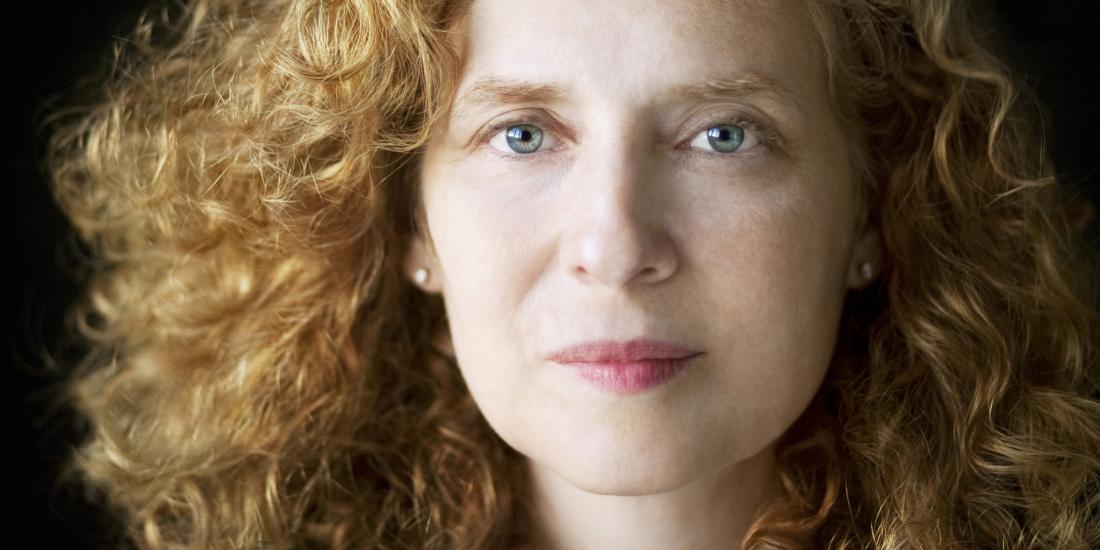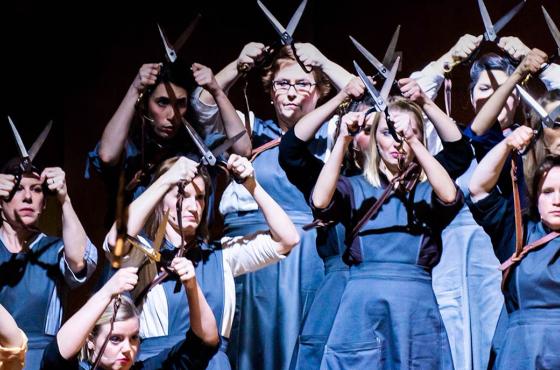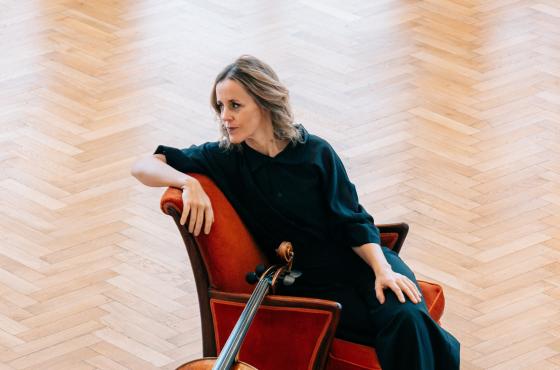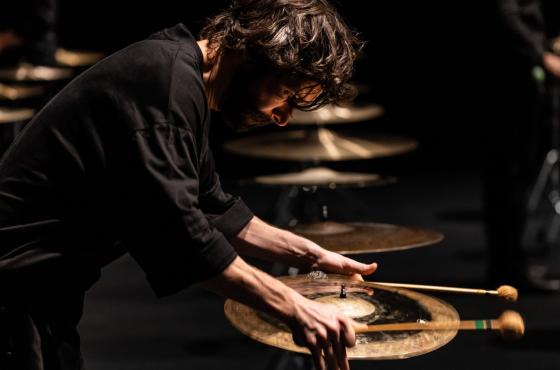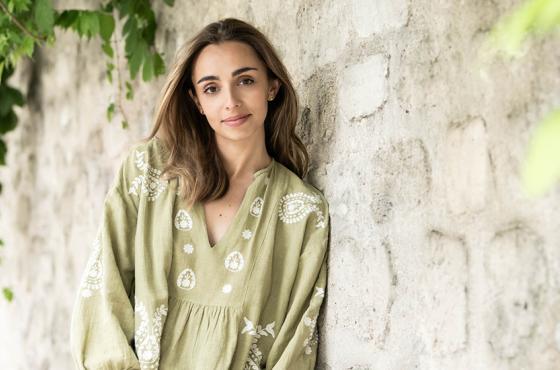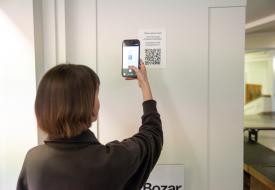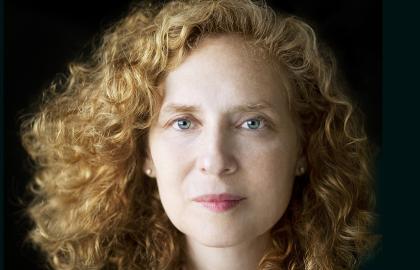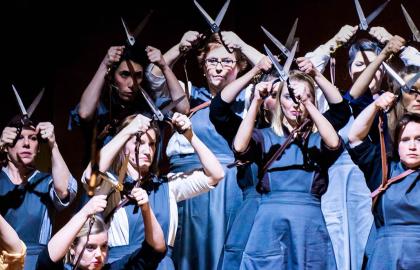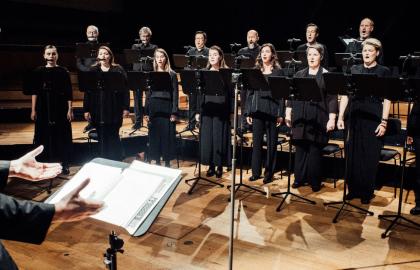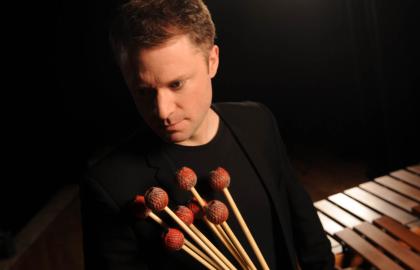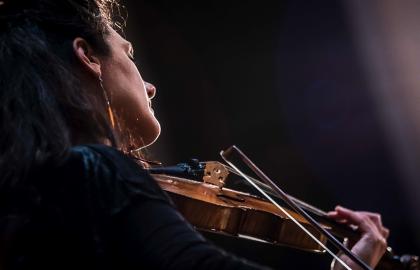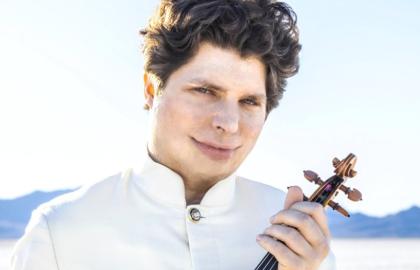Which of your projects at Bozar do you find the most exciting?
Julia Wolfe: “My music featured this season shows my love of sonic intensity and a deep connection to theater. My oratorio Fire in my mouth shouts this out the loudest. Over 100 women singers join forces with full orchestra. Premiered in January in 2019 by the New York Philharmonic, Fire in my mouth is based on the garment industry at the turn of the century, with a focus on the 1911 Triangle Shirtwaist Factory fire and its aftermath. I had been thinking about the immigrant women in the workforce. They fled their homelands to escape poverty and persecution. The garment workers arrived to these shores with sewing skills. Many of the women wound up working on huge factory floors - hundreds of women sitting at sewing machines. Fire in my mouth tells the story of the women who persevered and endured challenging conditions, women who led the fight for reform in the workplace."
Are you familiar with the work of the other portrait artists, Lea Desandre, Sol Gabetta and Fennesz?
Wolfe: “Yes! I am familiar with the brilliant and very personal musicianship of the other portrait artists. All combined it shows how big, broad, and remarkable creative music-making is right now."
Do you have previous memories of Belgium?
Wolfe: “I have an incredible memory of traveling to Belgium in 2013 for the premiere of my work Steel Hammer at Concertgebouw Brugge. Written for the Bang on a Can All-Stars and trio mediaeval, Steel Hammer is the first in a series of works that address issues of American labor history. Now the Bang on a Can All-Stars will team up with the Vlaams Radiokoor for Anthracite Fields when they return to Belgium this season to perform at Bozar. Anthracite Fields honors the workers of the Pennsylvania Anthracite coal region at a time when the industry fueled the nation, and addresses the complicated legacy of the hazardous industry."
"All of the musical works on this residency draw from the American vernacular - fiddling, grooves, foot stomping, body slapping, the sound of distortion. The sensibility is raw and immediate."
From a concerto for body percussion to grand scale oratorios and a work for six pianos, at Bozar your oeuvre is presented over seven concerts. What's in your opinion the common thread in your work?
Wolfe: “All of the musical works on this residency draw from the American vernacular - fiddling, grooves, foot stomping, body slapping, the sound of distortion. The sensibility is raw and immediate. In Body Language a hand clap ignites an explosion in the orchestra. Rapid-fire chest slaps lead to driving beats on a drum-set made of plastic tubs and kitchen utensils. In Forbidden Love the percussionists take the instruments of the string quartet and turn them into hyper-dulcimers, striking and strumming in a brutal clatter."
Works such as Fire in my mouth and Anthracite Fields unearth a piece of American history that is not found in school textbooks or collective memory. Is there any historical event or contemporary crisis that you would like to address in future compositions?
Wolfe: “I am planning a new work based on the period in American history known as McCarthyism, a time that has resonances with today. Ordinary people’s lives were destroyed by the hysteria and paranoia of right wing politics. This could be an opera. After Fire in my mouth I wrote two large-scale staged works for orchestra and voices. Her Story invokes the words of historical figures and the spirit of pivotal moments to pay tribute to the centuries of ongoing struggle for equal rights, representation, and access to democracy for women in America. unEarth examines our relationship to nature and tackles the subject of climate change. Another subject work, Flower Power, a concerto for the Bang on a Can All-Stars and orchestra, draws from the political upheaval and idealism of the late 1960s."
Discover the concerts of Julia Wolfe below. Or dive into the projects of our other portrait artists:
